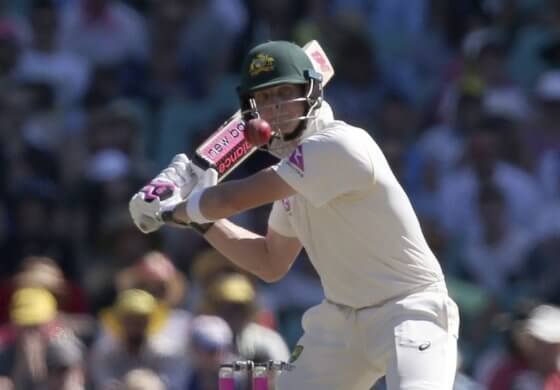The strategy of the International Cricket Council is to ensure that all three formats of the game survive and thrive, Chief Executive David Richardson has stressed.
Richardson, in his MCC Spirit of Cricket Cowdrey Lecture on Monday, 6 August, touched upon the importance of growing the game globally.
“We need to ensure that cricket is not elitist but is accessible to and capable of being enjoyed by all,” he said. “It is also necessary to provide opportunities for people to watch and follow the game.”
Elaborating on the theme in a panel discussion after the speech, he said Twenty20 cricket was the way forward to taking the game to new shores. “In the US, for them, watching Test cricket is like watching paint dry. Come up, run, bowl, shoulder arms.”
📺 @ICC chief-executive David Richardson on the need for t20 cricket to help “globalise” the game. #CowdreyLecture pic.twitter.com/5u4TuwlMIC
— Lord’s Cricket Ground (@HomeOfCricket) August 6, 2018
However, that didn’t mean the end of Test and one-day international cricket, Richardson insisted. “Our new strategy is to make sure the three formats survive well into the future, if we can.”
Dipping into results of a recent survey, he pointed out, “We’ve got over a billion fans, and 68% of those fans are interested in all three formats. So this is not a case of T20s taking over. People want to watch Test cricket, ODI cricket, and T20s. So it’s something to work with.”
Giving the example of India, which has the biggest audience for the sport, he pointed out that while the Indian Premier League could very well be commercially sustained for six months, the Board of Control for Cricket in India had resisted the temptation to do so. “They’ve always said Test cricket is important to them, 50 overs is important to them, and so far they’ve always been behind keeping all three formats going.”
🗣 “I’m excited by the Test league that is being introduced”@ICC chief-executive David Richardson discusses the future of Test cricket.
— Lord’s Cricket Ground (@HomeOfCricket) August 6, 2018
Speaking specifically about red-ball cricket, Richardson agreed that while day-night Tests would address the issue of accessibility to an extent, it would take more work, and the context provided by the ICC Test Championship would help.
“Day-night Tests will be great, but it won’t be the saviour of Test cricket,” he said. “It’s more about how we market Test cricket. It’s playing on selected weekends, maybe long weekends when people are available to come and watch. It’s giving context to Test matches.






